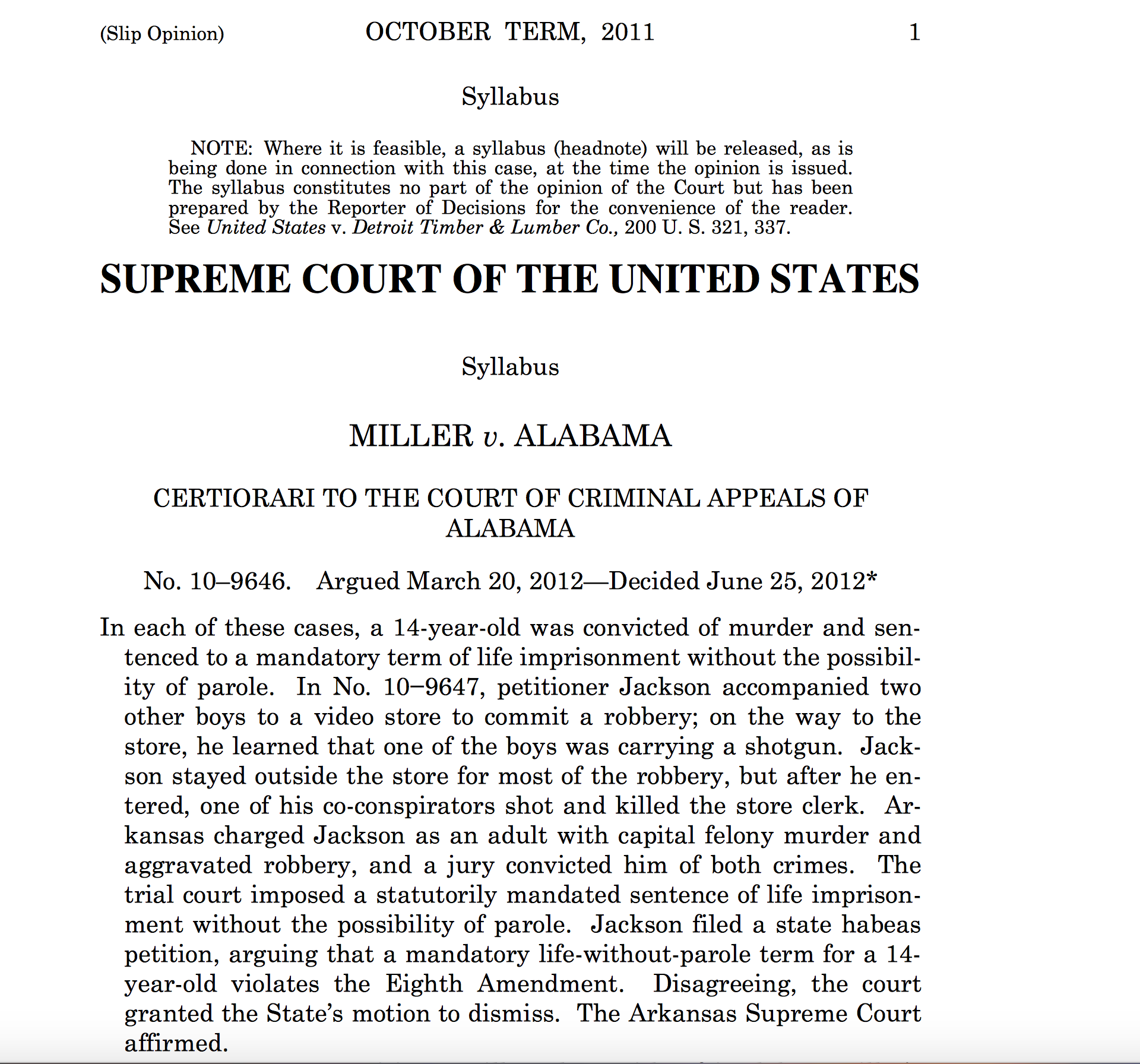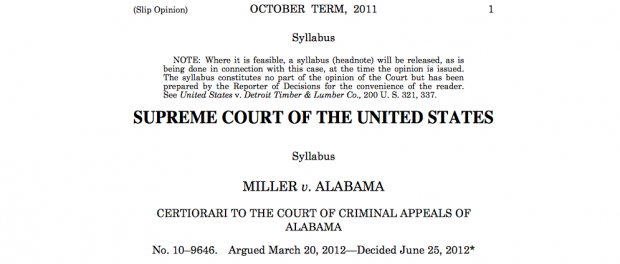
The U.S. Supreme Court first ruled mandatory life without parole sentences for teens unconstitutional in the Miller v. Alabama case in 2012. The ruling was made retroactive in 2016.
Quinton Chandler/StateImpact Oklahoma


The U.S. Supreme Court first ruled mandatory life without parole sentences for teens unconstitutional in the Miller v. Alabama case in 2012. The ruling was made retroactive in 2016.
Quinton Chandler/StateImpact Oklahoma

Quinton Chandler/StateImpact Oklahoma
Tucker McGee is in prison for murdering teenager JaRay Wilson. McGee was days away from turning 18. Now, more than five years after the murder, Legislators and district attorneys fear his sentence of life in prison without parole is on the verge of being reduced.
McGee’s sentence is one of several dozen that could be changed because the U.S. Supreme Court ruled mandatory life without parole sentences for juveniles unconstitutional in 2012. Four years later, the court decided that ruling would also apply to sentences handed down in earlier years. Justices said life without parole for juveniles should be reserved for those who cannot be rehabilitated.
The Oklahoma Court of Criminal Appeals agreed with the higher court ruling when it ordered district courts to re-sentence McGee and Chancey Luna — another inmate facing life without parole for the 2013 shooting of college baseball player Chris Lane.
The problem with the sentences is that state law does not set standards for courts to determine, on a case-by-case basis, whether juveniles deserve a life without parole sentence. That’s why Oklahoma lawmakers and district attorneys guided Senate Bill 1221 through the state House earlier this week.
The House version of the bill details education and skill requirements for members of the Oklahoma Pardon and Parole Board, but it was amended to include a procedure judges would use to decide whether juveniles convicted of first-degree murder should spend the rest of their lives in prison.
Here are a few things the judge would have to consider:
The state District Attorney’s Council says the standards reflect case law from the higher courts’ rulings.
State legislators and prosecutors hope to cement the new standards in state law before offenders convicted of murder as teens are re-sentenced. Otherwise if life without parole sentences are re-imposed, they could be vulnerable to appeal.
Rep. Harold Wright, R-Weatherford, added the sentencing requirements to SB 1221 on behalf of the state District Attorney’s Council two business days before the Monday vote. Wright said the amendment can still be tweaked and he is willing to work with any lawmakers who have concerns with the language.
Multiple Democrats said they opposed life without parole sentences for juveniles. They attacked the amendment because it was added to a criminal justice reform bill after it unanimously passed committee. The Democrats claimed the amendment was fast-tracked so legislators didn’t have enough time to study the language and opponents couldn’t force a compromise.
Angela Marsee, a district attorney for Beckham, Custer, Roger Mills, Washita and Ellis Counties — who has jurisdiction over the Tucker McGee case — says prosecutors expected lawmakers to pass legislation that would address the higher courts’ rulings. When nothing was passed, the District Attorney’s Council started writing legislation earlier this session. “Time is of the essence,” she says.
McGee’s pretrial hearing is on May 7. Luna’s resentencing will be scheduled for the fall of 2019. The Oklahoma Indigent Defense System has identified 41 other inmates sentenced to life without parole as teens who also could have their cases sent back to district court for resentencing. There could be more.
SB 1221 would also give inmates sentenced to life without parole as juveniles the opportunity to have their sentences changed after they’ve served about 39 years in prison. Some may get a chance for parole. Juveniles given sentences that might as well be life terms for crimes other than homicide would also be given a chance to have their sentences changed — if the bill is signed into law.
The House passed the amended bill 60 to 31. An emergency clause that would’ve made the bill effective immediately after Gov. Mary Fallin’s approval failed. The measure’s next stop is the Senate.